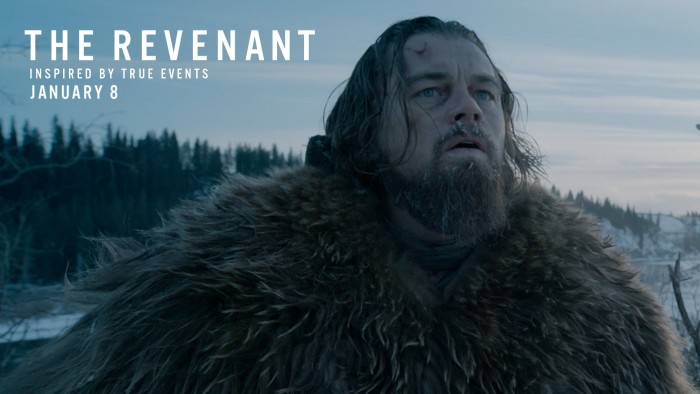Based on the true story of 19th century frontiersman Hugh Glass who, after being mauled by a bear, was left by his hunting companion to die in the wilderness, Alejandra Gonzalez Iñárritu’s The Revenant is a haunting story of survival, grief and revenge. The hero of The Revenant, portrayed by Leonardo DiCaprio, has to overcome incapacitating injuries, freezing cold, danger, hunger, and fear in order to exact revenge on Fitzgerald (Tom Hardy), who inflicted on him unbearable suffering before abandoning him to die in the cruellest conditions possible. Iñárritu based his movie on Glass’s almost mythical adventure as told by author Michael Punke—who also serves as the United States Trade Representative and US Ambassador to the World Trade Organization—in his book The Revenant: A Novel of Revenge (2002).
The story as told by Iñárritu is first and foremost the drama of a father’s devotion to his son. DiCaprio’s character is one of undying persistence and hope, despite the ghastly scenery and death lurking at every step he makes. With the attack leaving his character for dead, DiCaprio manages to simultaneously convey feelings of physical pain, unbearable grief, and deep desperation as well as determination and hope. For a treacherous 30 minutes, viewers witness Glass unable to speak, let alone walk or move any part of his body while being carried by his hunting team through the snowy wilderness of the American rural West. What truly makes the movie fascinating is how DiCaprio manages to include the viewer in the frenzy of emotions endured by his character, making a totally un-relatable story incredibly engaging for the audience.
While DiCaprio’s genius performance lies in his facial expressions and the feelings he manages to transmit to the audience, Hardy’s achievement comes from his ability to grasp the sour and narcissistic character of Fitzgerald polished by the extremely well-written script by Mark Smith and Iñárritu. Fitzgerald, feels threatened by Glass’ navigational abilities through the mountains leading to his decision to leave Glass for dead. A pleasant surprise of the film is Will Poulter’s performance as the young huntsman, Bridger. He accomplishes the role of the tormented, yet good-hearted child who is forced and threatened to do things that go against his values. He becomes part of the reason Glass survives, and the only character besides Glass that shows humanity and respect when dealing with indigenous people.
Emmanuel Lubezki’s cinematography is so elegantly crafted it reaches in some scenes the level of pure art. He masterfully conveyed the hero’s struggle with the elements and people by alternately using extended shots of nature—the movie was filmed in Alberta, Montana, and Argentina—and long close-ups of faces, focusing the most on the eyes. The movie is mainly composed of multiple lengthy single take shots of high action moments, alternating with the most anti-climactic scenes. The director revealed that he filmed his movie using only the natural light of the winter sun. He would shoot for few hours and only small bits at a time, which added to the rawness and emotional intensity of the movie. Ryuichi Sakamoto and Carsten Nicolai’s eerie original score completed the movie’s atmosphere and contributes to its brilliance. With very little talk, the music takes over most of the scenes and adds to the emotional and physical tension of the watching experience. Looking around the theatre, one can see that spectators were literally on the edges of their seats, covering their gasps, twitching their eyes.
The Revenant is not a movie for everyone, however. The film, clocking in at two hours and 37 minutes, goes at an incredibly slow pace, with sometimes tedious, graphic, and gory scenes to emphasize the hardship and the misery of the main character. The acting is grim, and you can count no more than two or three smiles from the characters during the whole movie. There is also a certain element of magic and supernatural, common in Iñárritu’s movies, that may make The Revenant unlikely to please an audience accustomed to Hollywood style, straight forward stories of extreme action and revenge.
Nonetheless, it is impossible to deny the genius of Iñárritu’s cinematography, or DiCaprio and Hardy’s artistic prowess. With many Golden Globes in pocket, the film is well set to be a huge winner at this year’s Academy Awards.









